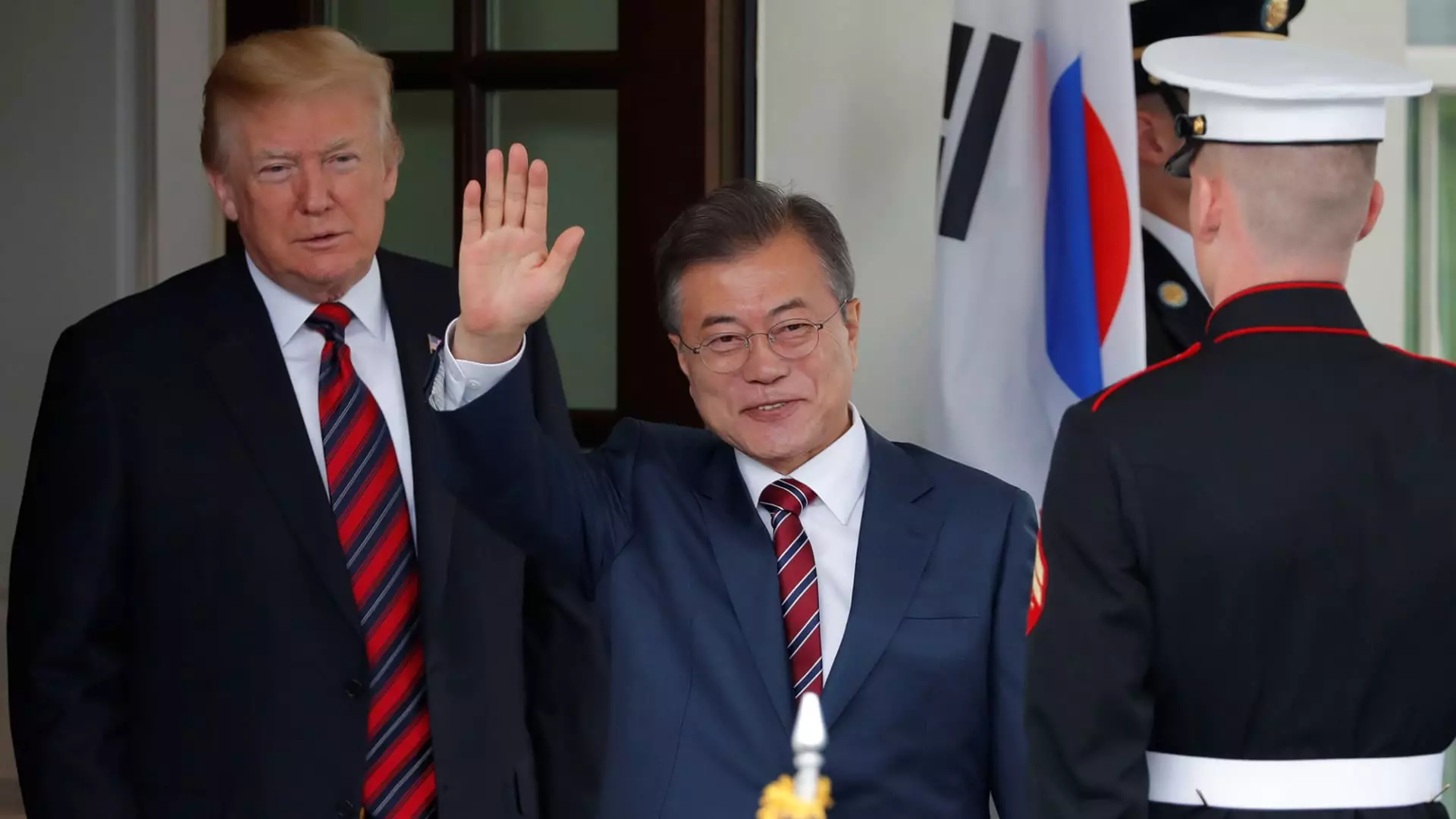In the complex landscape of international trade, tariffs can dramatically influence market dynamics, impacting both producers and consumers. Recently, President Donald Trump has amplified discussions surrounding the imposition of tariffs against various U.S. trading partners, with South Korea and Japan standing out as particularly significant players in the automotive market. The ramifications of such policies could reverberate through the American auto industry, upsetting the balance of trade and altering the competitive landscape.
Data shows that South Korea and Japan collectively accounted for nearly 17% of vehicle sales in the U.S. last year, underscoring the importance of these countries as key sources for American consumers. South Korea has notably surged in its exports to the U.S., reaching a record 8.6% share, while Japan holds at 8.2%. Currently, vehicles imported from Japan face a modest 2.5% tariff, a stark contrast to the hefty 25% tariffs expected to be imposed on Canadian and Mexican imports. The dynamics are crucial as General Motors and Hyundai Motor benefit from tariff-free exports that make entering the U.S. market comparatively easier.
As the competition heats up, the potential for punitive tariffs raises concern among industry stakeholders, particularly for companies already heavily reliant on imports, such as Hyundai and GM. The latter has seen a substantial rise in sales of models produced in South Korea, emphasizing its growing dependence on this market segment.
The proposal to introduce new tariffs could have a cascading effect on the entire automotive supply chain. Automakers might face increased production costs, which they would likely pass onto consumers, resulting in higher vehicle prices. Given the rising consumer demand for cost-effective options, elevated prices could deter buyers, leading to a contraction in sales. Jeff Schuster from GlobalData encapsulated the looming risk, identifying Hyundai and GM as the most exposed in case additional tariffs are enacted.
Moreover, tariffs often invoke a response from the affected countries, potentially leading to retaliatory measures that could create a more insular trading environment. In the context of a globalized economy, these back-and-forth tariffs can create volatility and uncertainty, prompting companies to reconsider supply chain strategies, which could ultimately lead to job losses and decreased investment in the auto sector.
The free trade agreement negotiated in 2018 between the U.S. and South Korea was initially hailed as a triumph, aimed at enhancing the flow of goods between the two nations. However, it seems to have backfired in terms of addressing the issues within the automotive sector. While South Korea managed to secure its position as a prominent exporter to the U.S., the agreement’s benefits for American car manufacturers have been minimal. U.S. exports to South Korea are down by 16%, highlighting a missed opportunity for growth in two-directional trade.
Trade agreements are meant to forge stronger economic ties, yet they require continual attention and revisions to adapt to evolving market realities. The current state of affairs suggests that the 2018 agreement may need a critical reevaluation to more effectively balance interests and facilitate fairer competition.
Experts within the industry, such as Terence Lau, assert that while tariffs may stir unrest in the short term, the automotive sector possesses an innate ability to adapt. However, he cautioned that profound changes, particularly those exceeding 10%, would stretch profit margins substantially. This sentiment is echoed by leaders like Ford’s CEO Jim Farley, who has called for a comprehensive evaluation of tariff strategies that ensures an equitable competitive landscape across the board.
The automotive sector operates on thin margins, and any uplift in costs due to tariffs can jeopardize profitability and stifle innovation—both elements critical for remaining competitive in an increasingly crowded market.
The potential implementation of tariffs by the Trump administration could signal a monumental shift in the U.S. automotive landscape, primarily affecting trade relationships with countries like South Korea and Japan. The ensuing consequences would not only reshape market conditions but could also stifle growth and innovation within the industry. As international trade policies evolve, it remains imperative for stakeholders to navigate the delicate balance between protecting domestic interests and fostering a competitive, globally integrated market. As discussions continue, it is crucial for policymakers to engage with industry leaders, ensuring that the measures enacted ultimately serve the interests of both producers and consumers within the automotive sector.

